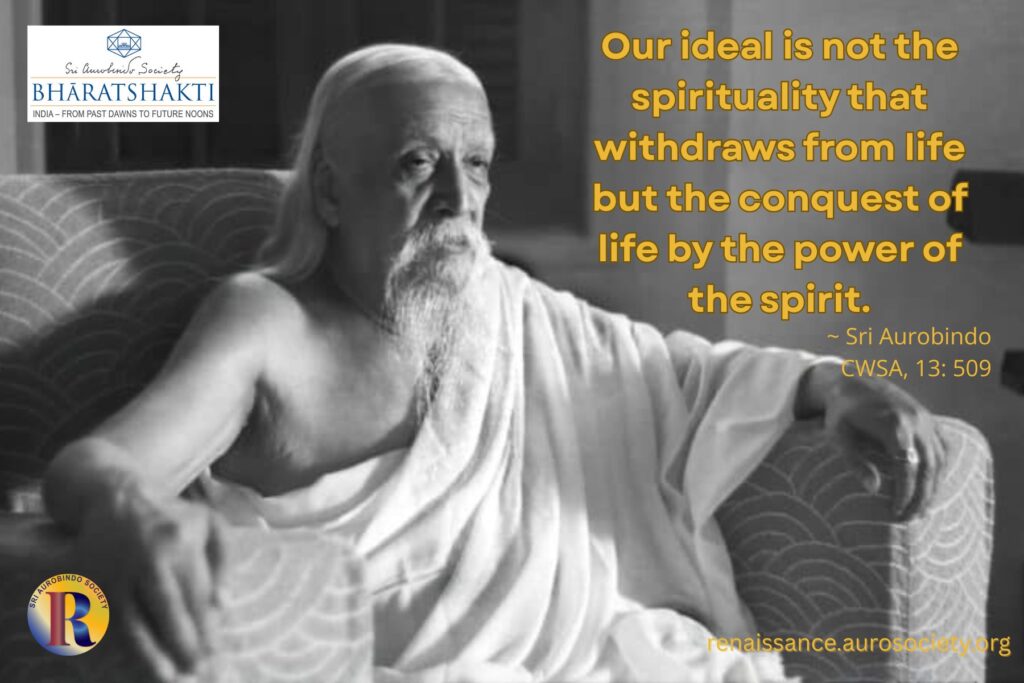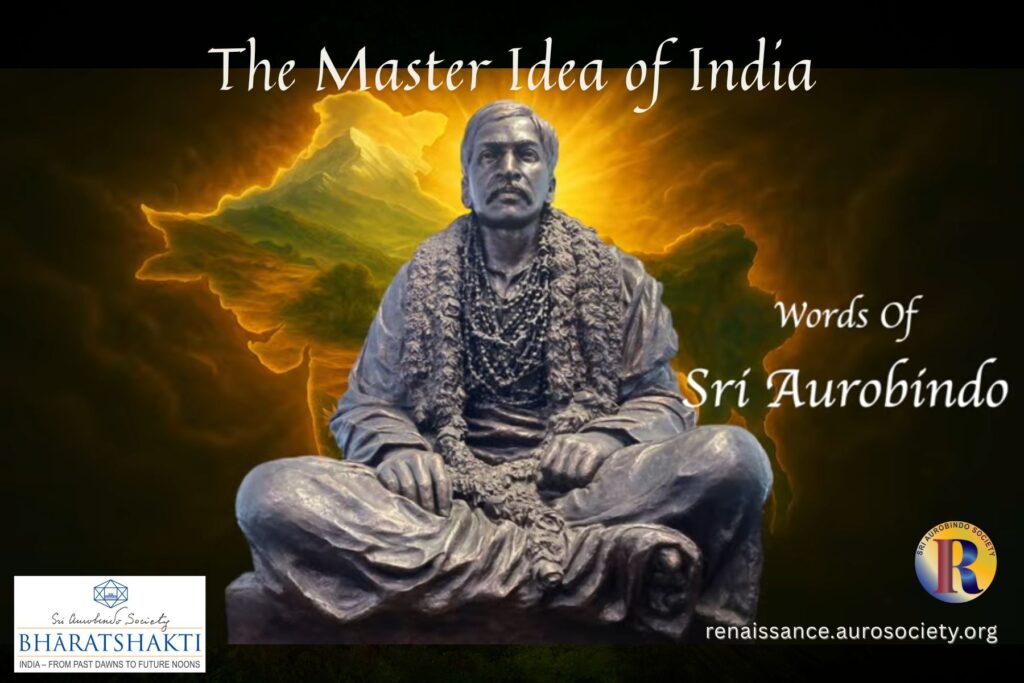Volume I, Issue 1
Author: Beloo Mehra
Editor’s note: As India, a civilisational nation, goes through a significant transition and a process of rediscovering and redefining her own way – a deeper way of being, it is important to ask some key questions. What is the nature of this Indian renaissance? What does it mean for the future of India and the world? And in what ways is Sri Aurobindo one of the key forces behind or leading this renaissance?
Some of these questions were addressed in a Special Lecture by Dr. Kundan Singh titled “Sri Aurobindo and Renaissance in India” organised on January 9, 2019, at Sri Aurobindo Society campus. The event was attended by about 40 participants.

The Lecture
Dr. Kundan Singh opened his lecture with a brief general introduction to the place India and the unique and distinct spiritual character of Indian civilisation and culture held in Sri Aurobindo’s larger vision for the humanity and the world.
Quoting some of the key insights from Sri Aurobindo’s essays titled “The Renaissance in India” he highlighted what he thinks may be understood by Sri Aurobindo’s emphasis on the “recovery of the old spiritual knowledge and experience in all its splendour, depth and fullness” as the first, most essential work that must be done for a renewal of India’s unique civilizational spirit. He spoke about some of the existing ideologically-driven narratives on India and Indian culture which hamper the much-needed intellectual process of a sincere quest for the truth about India.
Speaking on the necessity of a deeper educational rethinking in India, Dr. Singh emphasised the need for nurturing and unleashing the power of thought in a way that uplifts the consciousness of students. He felt that a certain kind of intellectual laziness and a denial of the power of faculties beyond the mind and of the yogic ways of knowing have kept the Indian intelligentsia imprisoned in the dominant Western modes of knowing and understanding the world and reality.
And this must change if Indians truly want to know and speak of India and work toward an Indian renaissance in an India-centric way. This has to be a way which does not deny the value and legitimacy of the rational ways of knowing but simultaneously seeks for a way to transcend the limitations and binaries imposed by the mind.
Dr. Singh spoke about the need to know the past, but in a way that helps us revitalize it. This should help us move ahead and bring forth the essential spirit of the past in newer forms appropriate to the present and future that is yet to come. He emphasised that in Sri Aurobindo’s vision and writings for India we find a transcendence of all the binaries of tradition and modernity, conventionalism and progressivism. This transcendence must also be an aspiration for the Indian intellectual classes. He further spoke about the necessity of revitalization of the languages of India and the need for wider propagation of Sanskrit.
Emphasising, once again, the spiritual essence of the India’s civilisational rebirth, Dr. Singh concluded his talk with another key insight from Sri Aurobindo, namely, “the work of the renaissance in India must be to make…this higher view of life, this sense of deeper potentiality once more a creative, perhaps a dominant power in the world.” He then invited questions from the audience members so that a deeper understanding of some of the points presented in the talk may emerge.
The Discussion
A healthy exchange of ideas and perspectives followed the talk. Several members of the audience asked pertinent questions. Some questions were in form of seeking clarifications for a few points brought up in the lecture, while others were requests for further elaboration.
Some of the participants asked questions about how Sri Aurobindo’s insights on the spiritual nature of Indian culture might help us to work through some of the troubling issues of our times which may be hampering the path to a renaissance. These issues may be about facing some of the deeply disturbing chapters of India’s socio-political history or about the religious conflicts of our present times.
A couple of participants raised points about the relative value of a top-down approach versus an awareness-raising approach to bring sustainable change in the collective Indian consciousness.
About the Speaker
Dr. Singh has a rich academic experience of teaching and research in the fields of psychology, philosophy and Sri Aurobindo Studies in various institutions in the USA. He has served on the faculty of Sofia University in Palo Alto, as well as the California Institute of Integral Studies where he also earned his PhD in Humanities.
He is the Vice-President of the Cultural Integration Fellowship, San Francisco, where he regularly gives talks and seminars on the works and vision of Sri Aurobindo and the Mother. He also holds a Master’s degree in Applied Psychology as well as a B.Sc. in Chemistry from Delhi University.
Some of his significant publications include a book titled “The Evolution of Integral Yoga: Sri Aurobindo, Sri Ramakrishna, and Swami Vivekananda” and a chapter titled “Beyond Mind: The Future of Psychology as Science” in a textbook titled “Foundations of Indian Psychology” brought out by Pondicherry-based Indian Psychology Institute. His most recent publication titled “Making Children Hinduphobic: A Critical Review of McGraw Hill’s World History textbooks,” is an expose of McGraw Hill’s history textbooks for school-going children in California containing Hinduphobic material, set into motion during the British colonial period.



